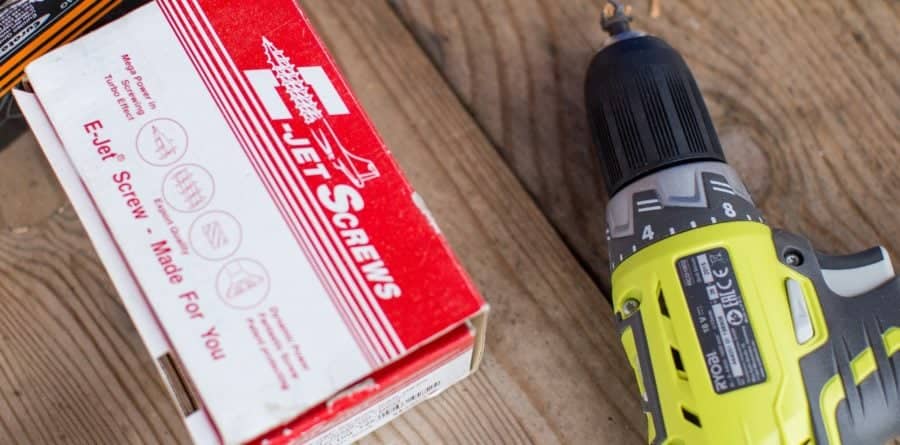20/03/2020
When adding value to your home - the basics still pack the biggest price punch
Contributed by HaMuch
20/01/2020 - HaMuch

When the inevitable January DIY turns to failure and you need to turn to the help of a professional it can be a daunting experience if you don’t know your ball cocks from your flanges, and while we try to play it cool when a tradesman is in our house, we all get lost in a sea of trade lingo from time to time.
But not to worry, leading tradespeople comparison site, HaMuch.com, has compiled a trade term dictionary so you can converse like a pro and keep on top of what’s happening in your home.
Trades
Let’s start simple. Most of us will know the slang for different trades, but if your trade person advises you need a bricky, chippie or sparky, it simply means a builder, carpenter or electrician.
Unintended Connotations
You may think your tradesperson is being a tad rude with certain phrases but the chances are they’re not. A ball cock may bring a snigger, but it’s actually a mechanism used to fill water tanks, most commonly found in a toilet.
A flange may seem like the feminine term for a ball cock, but again, it’s not. It’s simply an external or internal rim to add strength to a structure.
A plumb bob? It’s just a weighted object on a line that establishes a straight line. A pickled finish sounds interesting but it’s just the process of finishing wood in a lighter colour rather than a dark varnish.
An access panel provides an easy route to any wires or pipes hidden behind walls, while space balls are small rubber balls used to center panels in cabinet doors.
If your tradesperson tells you they are sweating a joint, don’t be alarmed, they’re just soldering copper piping together.
If you hear your tradesperson say on the piss, don’t worry, they aren’t out drinking on the job, it means a line, cut or edge is far from straight. However, if they are talking about POETS day, you could be paying for a half days work as that translates to piss off early, tomorrow’s Saturday.
Materials
When discussing materials and methods, trade lingo may leave you lost. However, it’s often pretty simple. Aggregate is nothing more than crushed stone or rock in most cases, while cladding is a thin layer applied to the outside of a building, more often than not for decorative reasons.
Eggshell is a type of paint that sits between matt and high gloss finish, while grout is used to fill gaps between bricks or tiles. Lagging isn’t their state from a wild night before, it’s an insulation that covers pipes to regulate temperature, while quoin can be the corner of a wall or a specific block used to construct the corner of a wall.
Skim is a final layer of plaster to provide a smooth finish and a soldier’s course are bricks laid vertically rather than horizontally.
Structures
Don’t be alarmed if your tradesperson mentions a carcass, carcasses refer to kitchen cabinets or any other item of furniture shaped like a box. A catch is simply the mechanism that keeps cupboard doors shut.
A party wall isn’t as fun as it sounds, it simply refers to a shared boundary as you would have in a semi-detached property. A rafter is a series of sloping wooden beams typically found in a pointed roof and a throat is the narrowed part of a chimney above a fireplace.
The Rest
Other terms you may hear range from drafting, which means having architectural plans drawn up for a job. The first and second fix refers to the work needed to get a building from the foundation stage to plaster on the wall, with the second fix bringing a neater finish to the work.
Grain is nothing more than the direction of wood fibres and snags or snagging is taking care of any final minor issues to finish a project.
So there you have it, now you can converse with a tradesperson like a pro and avoid the awkward situation of nodding and smiling while having no clue what they are talking about.
Founder and CEO of HaMuch.com, Tarquin Purdie, commented:
“It’s no surprise that tradespeople across all sectors have their own industry lingo in the same way we all have in our respective areas of work. However, for some reason, the fact that they often conduct their work within our homes forces us to feel we should know this vast range of slang and industry terminology or risk extreme embarrassment.
While some of this stems from a desire to stay in the know and avoid being taken for a ride, it’s far less stressful to hire a trusted tradesperson and leave the work and chat to them, while you go about your daily life instead.”
For further information visit the HaMuch website.
All articles on this news site are submitted by registered contributors of EssexWire. Find out how to subscribe and submit your stories here »